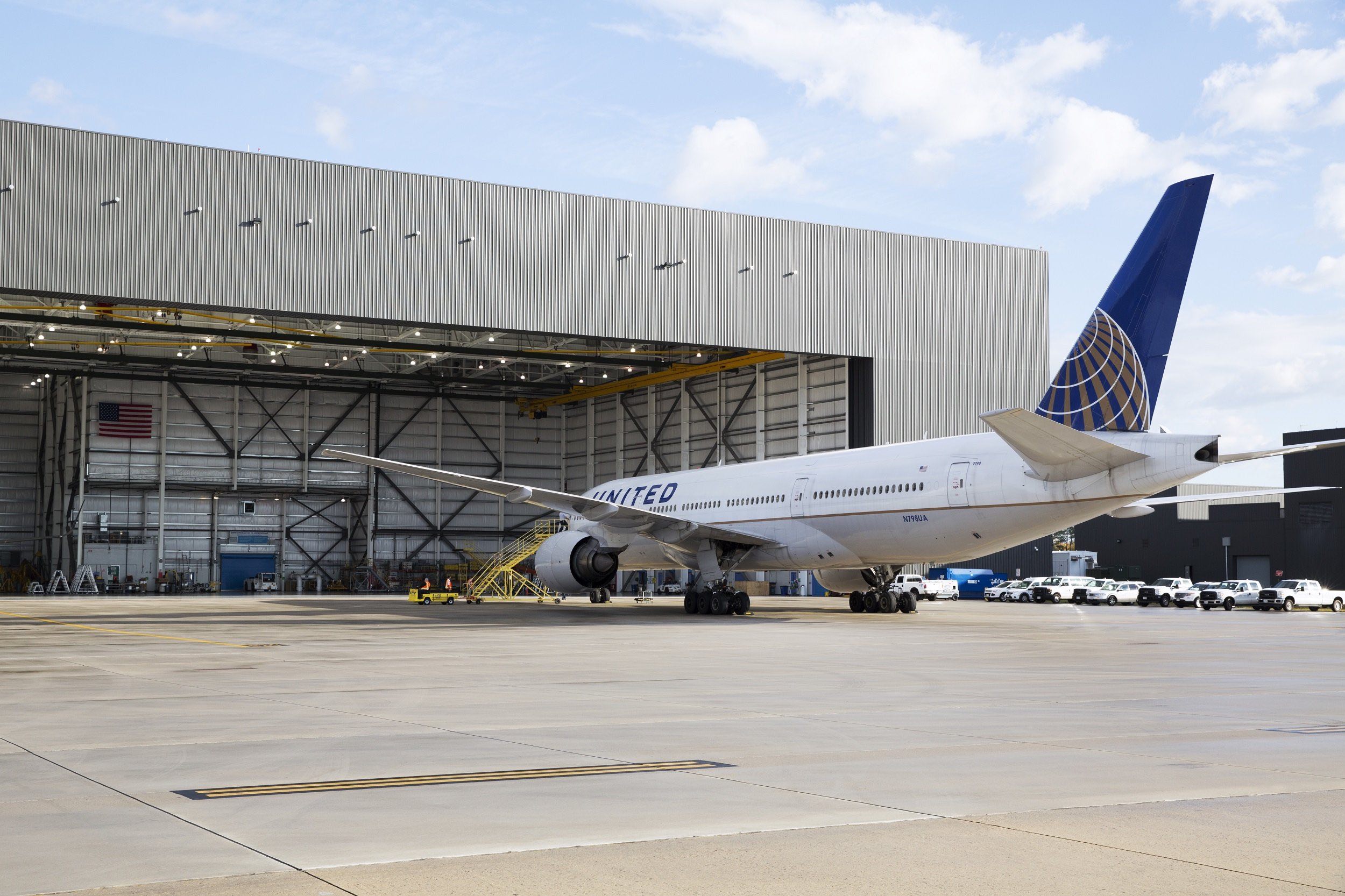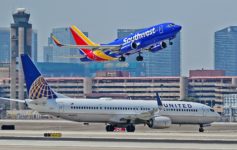Just in time for the novel coronavirus, United has a novel definition of cancellation. Does United’s new definition fly or is it another slap in the face of consumers?
Three of my favorite blogs have addressed this issue and several of you have asked me to do the same. For other viewpoints, see:
Let’s start by examining what U.S. law requires, then examine how United has redefined cancellations, and finally I will share my viewpoint.
What Is Required Under Law?
As recently as last month, the U.S. Department of Transportation reiterated that cancelled flights entitle customers to cash refunds:
“U.S. and foreign airlines remain obligated to provide a prompt refund to passengers for flights to, within, or from the United States when the carrier cancels the passenger’s scheduled flight or makes a significant schedule change and the passenger chooses not to accept the alternative offered by the carrier.”
DOT has further clarified that “if your flight is cancelled and you choose to cancel your trip as a result, you are entitled to a refund for the unused transportation – even for non-refundable tickets.”
Furthermore, these refunds must be processed within 20 days.
> Read More: If The Voucher Doesn’t Suit, You Must Dispute.
> Read More: What Constitutes A “Significant” Flight Schedule Change?
How United Has Redefined A Flight Cancellation
United Airlines has taken a more aggressive approach than others to preserve cashflow. In doing so, it has stretched traditional definitions of schedule changes and flight cancellations.
Here’s how United has re-defined three key terms:
Schedule change: A flight is removed from our schedule, but the customer can be accommodated within 6 hours.
Significant Schedule Change: A flight is removed, and a customer cannot be accommodated with an impact of 6+ hours.
Cancellation: A flight is removed, and we cannot accommodate the customer.
If we remove a flight from our schedule and can accommodate the customer with another flight within 6 hours, that is not considered a cancellation.
A cancellation is not based on flight number or tail number, but on the ability to provide transportation to our customer without significant delay.
United claims it definitions and polices are in compliance with DOT mandates.
Yes, United no longer “cancels” a flight, it simply “removes” it from the schedule. Furthermore, United only defines a cancellation as a flight “removal” plus an inability to get the customer in the air within six hours.
Notice, United does not even say a passenger must arrive within six hours of original arrival time, one that a customer must be “accommodated” within six hours, suggesting a customer must only begin flying within that six-hour time frame.
My Take
For those of you hoping I will defend United, I’m sorry to disappoint. This is an absurd new definition that is simply indefensible.
If United hired me to defend this move, I’d probably try to spin it in this way:
- This is a “force majeure” event that is beyond United’s control
- Per the Contract of Carriage, United is not obligated to provide refunds due to “force majeure” events
- Therefore, any refund offered is simply an extension of goodwill and non-obligatory
I don’t think that is very persuasive, for arguments I will make in a subsequent post, but “we are fighting for survival” defenses are even weaker.
The law is clear in this case. There is no such thing as a flight removal, only a flight cancellation. United’s conduct in skirting refunds is indefensible.
CONCLUSION
I would love to hear someone cogently and persuasively defend United’s practice. I also note that United is not alone in dodging refund obligations, though American and Delta have been much better at issuing refunds, especially for flight cancellations. But as much as I am known as the resident “United fanboy” among our community, I cannot and will not defend this sort of Orwellian re-definition. To that end, I hope the DOT puts some pressure on United to have a quick change of heart.





DOT has specifically rejected the force majeure argument alleviating the refund obligation.
Under United’s newspeak, if they go from 8 flights to 3 in the market, they haven’t cancelled 5 flights because they can still accommodate customers.
Since DOT says cancelled ‘or’ significant change requires a refund, these are two separate concepts. United wants to treat only cancelling a route as cancelling a flight but those are two separate concepts as well.
Trust matters more than ever now for two reasons,
1. Because planes aren’t full so airlines will have to compete for business
2. Because customers can’t see everything that goes on to keep planes clean and need to be comfortable that the airline is keeping its word, in order to feel confident flying.
When United behaves in an untrustworthy way, I can no longer recommend flying them even when they are cheapest or have the best schedule.
To be clear, I agree that the “force majeure” argument is weak (“I don’t think that is very persuasive”), I just think it is the strongest among many weak arguments.
No, I got that you weren’t persuaded by it, just wanted to add that it’s already been explicitly rejected by DOT so…
American Airlines is doing the same thing. They are just basing it on getting you on a flight within four hours rather than within six hours. I was told explicitly, and had a back and forth, when my flight number from DCA to MIA was canceled and was put on a flight 4 hours earlier. They claimed it was a schedule change, which it is not. The flight number I booked was no longer operational, and therefore cancelled. The flight that I was moved to would have operated regardless of what my original flight did, so it is not a schedule change. If they took 4 flights out of DCA, it’s safe to say those flights are defined as cancelled, nothing else.
I think it’s good to go after United on this, but it’s also very important to hold American Airlines accountable for doing the same (just with a little less time span between the cancelled and new flight). We wrote about it for that reason right after Gary’s original post about United.
How does this work if your UA flight is removed and you have Freebird protection on it? Freebird will still reroute you within 4 hours, correct? Regardless of airline they have to put you on?
Cancellation is short notice. Removal from schedule timetable gives them lots of wiggle room. So, for 48 hours prior to departure, they cannot say it’s removed from schedule: it’s an outright “CANCELLED FLIGHT”. Otherwise, the re-timing of the itinerary can be called whatever they want.
For those who are affected by it, I see opportunity thrown in their face, especially if they have lots of time. Phone the call center and re-route for mileage runs… change DFW-BOS and reroute to DFW-SFO-BOS; go out of your way instead of MIA-LAX and fly MIA-ORD-LAX while grabbing some Garret’s popcorn along the way; get more time in luxury if you’re in Polaris from EWR-NRT and coax a beach hop EWR-HNL-NRT.
Matthew – lawyer to lawyer. Under most of European civil law, force majeure includes the condition that the event causing it is objectively unpredictable (besides being impossible to overcome). Is this the case under US law too?
I had a Norwegian flight once that got cancelled 12 hours before departure. The new flight they put me on left at exactly the same time as the old flight, just a new flight number. Only inconvenience for me was to get a new boarding pass. This I honestly wouldn’t call a cancellation, but under EU law I still got compensation.
So I understand United in their reasoning, but it should be something like schedule change if arriving 2 hours before or after scheduled arrival (even if flight number changes) and cancellation on anything more than that. Maybe more than 2 hours on long haul flights, something like the EU has with compensation with 2, 3 and 4 hours depending on the distance.
As someone who leans toward being an apologist for United I’m really glad that you’re not trying to defend the indefensible. What this move and others illustrate is the desperate need for a Passenger Bill of Rights. We could start with EU261 as a template, since it’s obviously a phenomenal success with both full service and low/ultra low cost carriers making money while providing accountability to the flying public.
Yep, I think we need one just like EU261.
I have been waiting 30 days since April 10th for United to process my request for a refund for flights they cancelled on me for 8 family members flying in and out of Maui. United pulled all their flights out of Maui. I have called, emailed, texted, instant messaged, and posted on their Facebook page. I have filed a complaint with DOT. Still waiting. This is a substantial amount of money since half of these seats were 1st class. I feel like this is another ploy United is using to delay refunds.